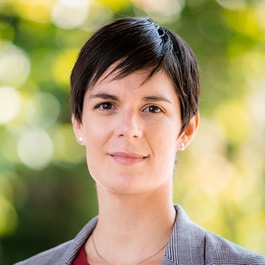Primary Website
Biography
Dr. Denia Djokić is an Assistant Research Scientist at the Fastest Path to Zero Initiative. Concurrently, Djokić is also a 2021 Levenick Resident Scholar in Sustainability Leadership at the University of Illinois at Urbana-Champaign.
Djokić assists the Fastest Path team in grounding approaches to zero-carbon energy system deployment in principles of social equity and environmental justice. She provides expertise and guidance in engaging with stakeholders and communities potentially impacted by the deployment of advanced nuclear energy technology.
Prior to joining the University of Michigan, Djokić was a Postdoctoral Research Fellow at the Belfer Center for Science and International Affairs’ Project on Managing the Atom at the Harvard Kennedy School of Government. There, she was also a Visiting Research Fellow at the Program for Science, Technology, and Society. Prior to her appointment at Harvard, Djokić served as an advisor on issues in policy and governance of science, technology, and innovation for the government of Ecuador.
Djokić holds an M.S. and a Ph.D. in Nuclear Engineering with a Designated Emphasis in Energy Science and Technology from the University of California, Berkeley, where she was a U.S. Department of Energy Office of Civilian Radioactive Waste Management Graduate Student Fellow. She also holds a B.S. in Physics from Carnegie Mellon University.
Education
University of California, Berkeley
M.S. and a Ph.D. in Nuclear Engineering with a Designated Emphasis in Energy Science and Technology
Research Interests
Djokić’s research interests lie broadly in the social and environmental justice aspects of the governance of nuclear energy technology. She is currently engaged in epistemic and institutional reimaginings of the nuclear field, particularly through modes of inquiry grounded in Science and Technology Studies and feminist scholarship. Her past research projects have encompassed technical and policy issues in radioactive waste management and advanced fuel cycle systems analysis.
Policy & Climate
